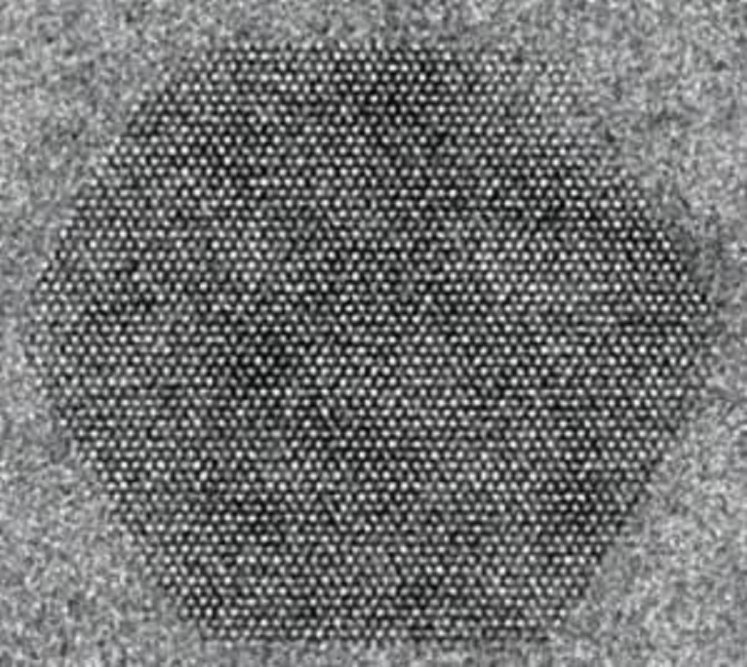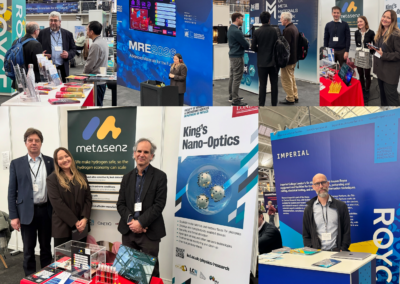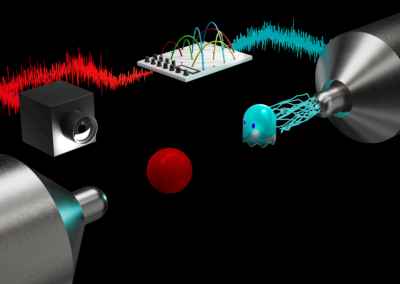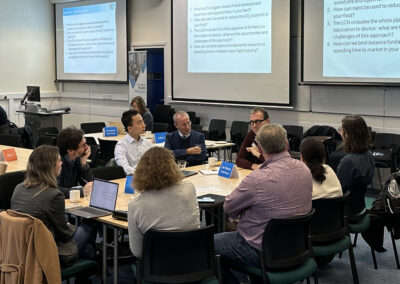2-dimesional nanomaterials that could be used to create light emitting diodes (LEDs) or solar cells have been made through the simple, but unconventional, method of spontaneous dissolution.
This new industrially-scalable approach, published in Nano Letters, produces solutions containing fluorescent solutes that are defect-free, hexagonally-shaped 2d nanosheets. The production method is in stark contrast to the standard alternatives, which rely on high energy input to delaminate layered materials, to produce meta-stable dispersions of fragments of 2d materials rather than pristine nanosheets.
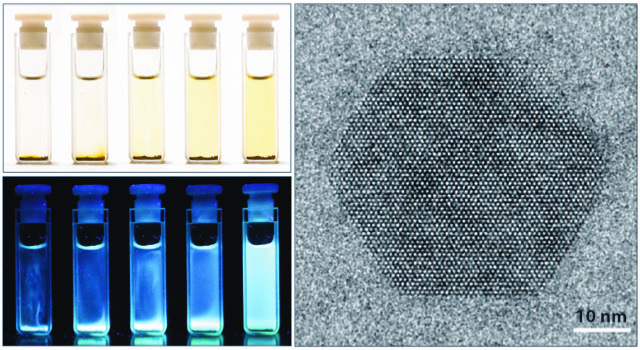
Figure: Hexagonal carbon nitride nanosheets gently dissolve into solution over time (left), producing luminescent, defect free 2d-nanosheets (right)
The team from the LCN, as well as the UCL departments of Chemistry and of Physics & Astronomy, Imperial College London, the University of Bristol and the École Polytechnique Fédérale de Lausanne, used advanced atomic force microscopy and transmission electron microscopy to investigate the structure 2D nanomaterials.
“Our method is surprising but incredibly simple. When we added certain solvents the layers of the carbon nitride simply floated off into solution. The process is very gentle so that the hexagonal shape of layers is maintained. Our high resolution TEM shows there are no visible defects across the entire sheets” said Dr Thomas Miller , UCL Chemistry.
In the study, funded by the European Union’s Graphene Flagship and the Engineering and Physical Sciences Research Council, the scientists showed that when these solutions were illuminated with UV light, they glowed (luminesced) with a distinctive colour. They went on to discover that this colour could be tuned by controlling the number of nanosheets stacked on top of one another.
The carbon nitride nanosheets are the latest 2d materials that the researchers at UCL can create by the scalable, non-damaging technique of spontaneous dissolution. They recently showed that many 2d materials could be made by dissolving salts of their bulk 3d analogues. However, for this new material they found that the first step was not needed and the nanosheets dissolved from the bulk in their as-synthesised form.
“The work is part of our ongoing research demonstrating that in some cases nanomateirals can be thermodynamically driven into liquids to form true solutions (similar to table salt dissolving in water), as opposed to the traditional view that nanomaterial dispersions are always meta-stable colloidal suspensions” explained Dr Chris Howard, LCN & UCL Physics & Astronomy.
UCL Business PLC (UCLB), the technology commercialisation company of UCL has patented this research and will be supporting the commercialisation process.
Link to publication: ‘Single Crystal, Luminescent Carbon Nitride Nanosheets Formed by Spontaneous Dissolution’ by Thomas S. Miller, Theo M. Suter, Andrew M. Telford, Loren Picco, Oliver D. Payton, Freddie Russell-Pavier, Patrick L. Cullen, Andrea Sella, Milo S. P. Shaffer, Jenny Nelson, Vasiliki Tileli, Paul F. McMillan and Christopher A. Howard
Related link: UCL News, New solution for making 2D nanomaterials
